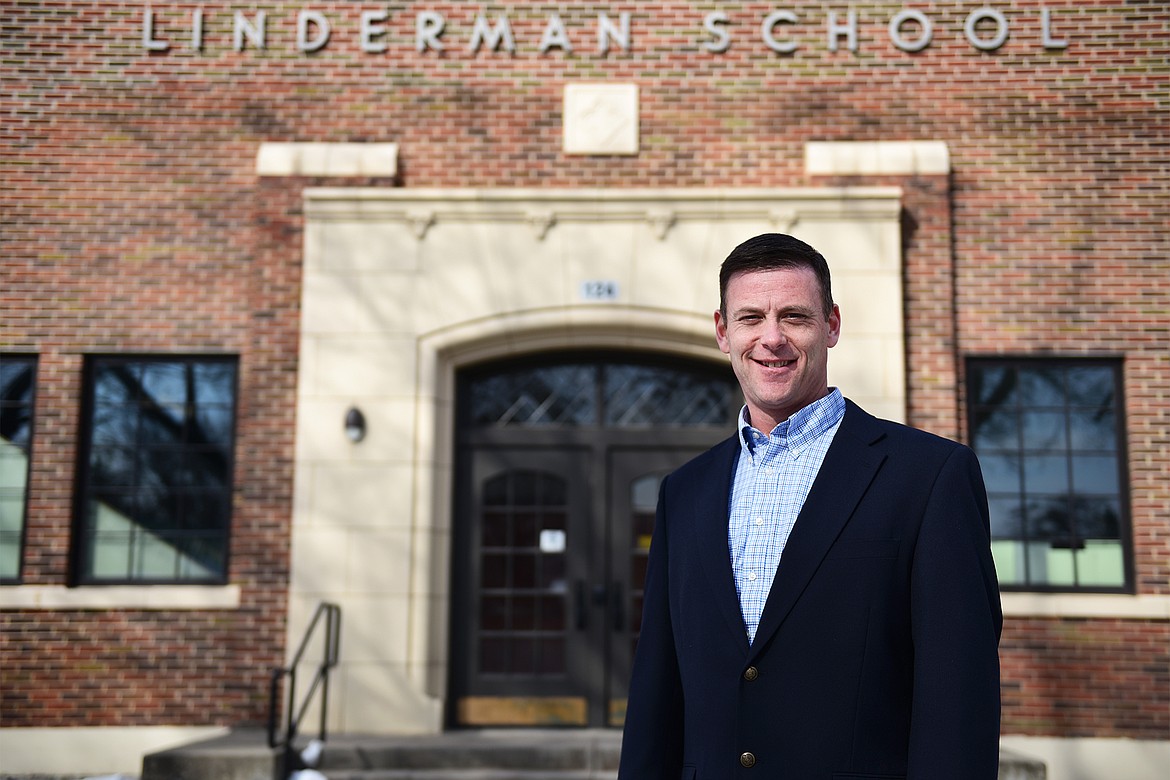Kalispell Schools new suicide prevention specialist focuses on health, wellness
Serving as the Kalispell Public Schools new health, wellness and suicide prevention specialist, Ben Dorrington has been examining the best ways to serve students, staff and parents.
The position is starting to take shape as Dorrington works to assess what the needs are and what work the district has done in the areas of health, wellness and suicide prevention. Dorrington, a 1996 Flathead High School graduate, said his work will focus on prevention, intervention and postvention.
“In the month that I’ve been here I’ve taken part in these student-led initiative groups where they’re talking about what they may need from their school programs — in the school environment — to better help them grow and become resilient and self-aware,” Dorrington said. “We've taken a look at our crisis response procedures and we’re trying to streamline those.”
The position is new to the district and is funded by a School Health Workforce Development grant through the Montana Department of Public Health and Human Services.
“In light of the suicide cluster [in 2020-21], and navigating the pandemic, what we realized was there were mental health and wellness needs of both students and staff that we really wanted to address not only as a reactive measure but also as a prevention measure,” said Sara Cole, district special education and federal projects director.
WHILE HE has a degree in psychology, Dorrington said he won’t be working directly with students in that capacity.
“We have school counselors, school psychologists, we have mental health providers in the community, so I view it [the position] as a more collaborative, bigger-picture effort to bring the different pieces of the community together to bring more seamless types of services,” he said.
Another goal for the position is finding out what support parents need.
“One of our major goals is to have a ‘parent university,’ or some kind of parent support system, to not only let them know what resources are available out there but ways to simply talk to your kids a little bit better,” Dorrington said.
Dorrington and Cole agreed that students are coming to school with a broad range of needs that schools are trying to meet by equipping students with skills so they can problem-solve, self-regulate and be self-aware in a changing landscape.
“I think the environment of school is changing. Kids are dealing with just a ton of issues they just didn’t have to deal with, you know, 10 or 15 years ago. Whether it’s issues they are dealing with at home, or on social media,” Dorrington said.
“I don’t think people realize the extent,” he added. “Some young people are having difficulties in navigating this world right now. I mean they’ve had this whole social media dynamic that none of us really went through. They’ve had a pandemic they’ve just gone through.”
There’s been a nationwide shift in schools’ focus from physical safety to emotional safety, he notes.
“Just this last week, in a webinar, the Department of Homeland security was talking about school climate, and ever since Columbine and Parkland [school shootings] we’ve really focused on the physical safety of kids at school,” Dorrington said. “That seems to be dying down where kids are reporting they definitely feel much more physically safe at school than they do emotionally safe, which was a really interesting perspective.”
Dorrington, who joined the district from his previous position as the social services director at Immanuel Lutheran Home, said he took the specialist position out of a desire to work with youth again.
After graduating from Linfield University in Oregon, Dorrington started working with youth when he took a job at the Wilderness Treatment Center in Marion and became a licensed substance abuse counselor, also known as an addiction counselor. The center, which is now closed, was an inpatient drug and alcohol treatment program for teens and young adults and the job became a 20-year career.
DORRINGTON BELIEVES working with youth offers more potential to affect change and prevent problems down the line.
“Ultimately, I think if you can give young people tools to be able to stop generational dysfunction — then we can start to change the landscape of society, right?” Dorrington said.
It’s challenging to break behavioral patterns once established, according to Dorrington.
“Dysfunction breeds dysfunction and if we can intervene early with the youth on that I think that’s really where change is going to come in our society,” he said.
Dorrington, who grew up in Kalispell, is glad to be working in the schools whose classrooms he once learned in. His mother was a kindergarten teacher at Elrod Elementary School. He attended seventh grade at Linderman school where his office is now located.
The inspiration to go into psychology came during his time at Flathead High.
“I had a really super-cool psychology teacher that definitely got me interested in it — Mr. [George] Beyer. It was one of my favorite classes. I think around that same time I got that calling to help people as a profession.”
Reporter Hilary Matheson may be reached at 406-758-4431 or by email at hmatheson@dailyinterlake.com.


